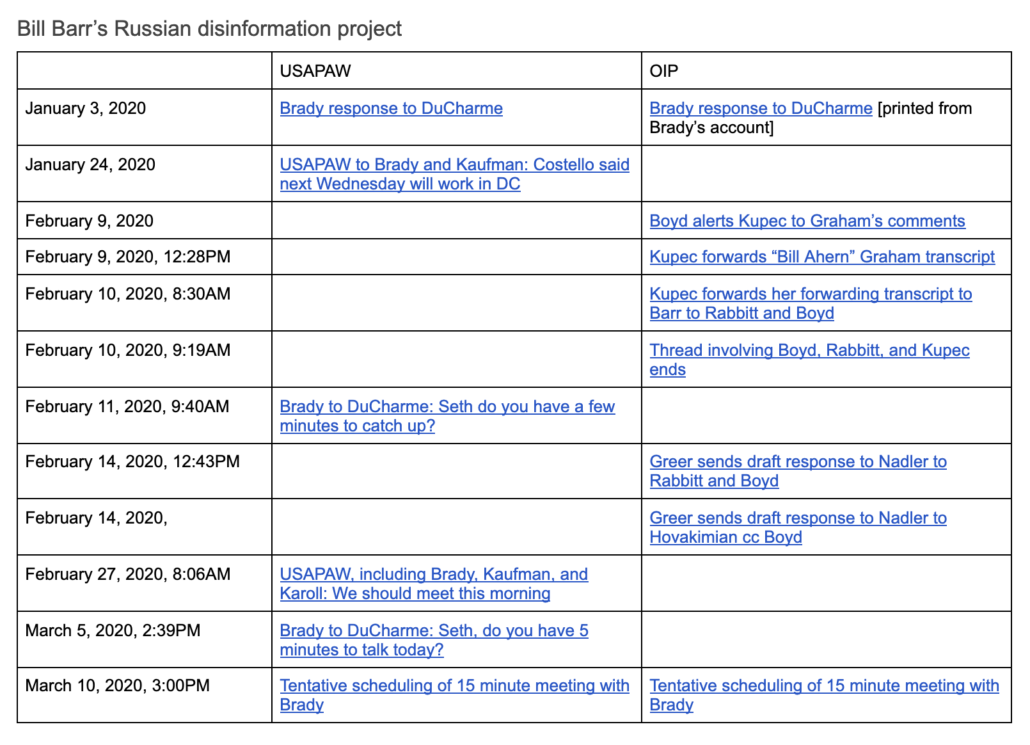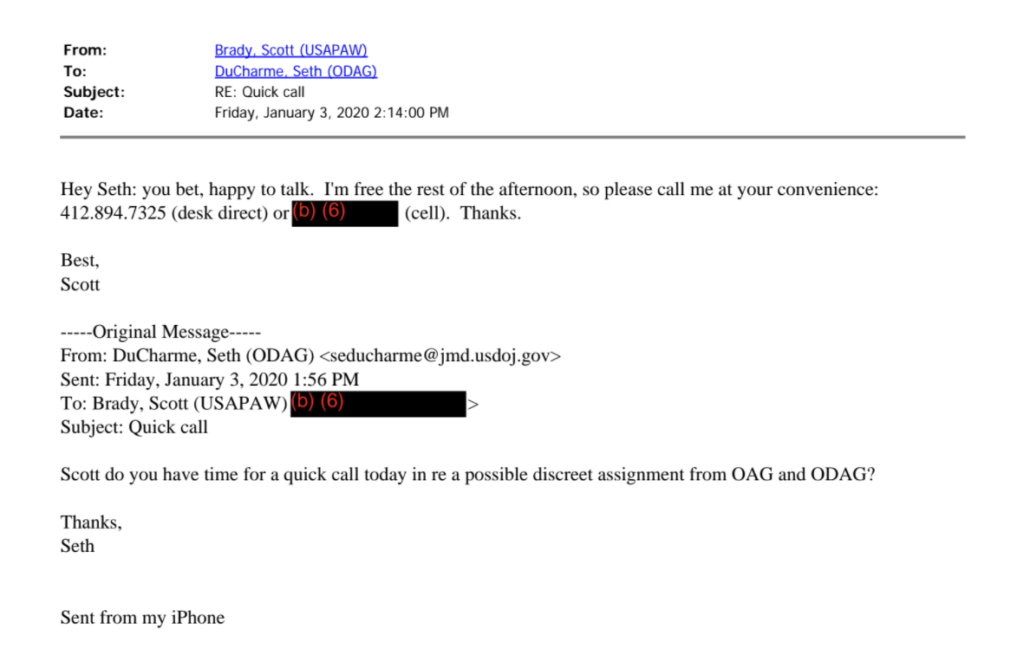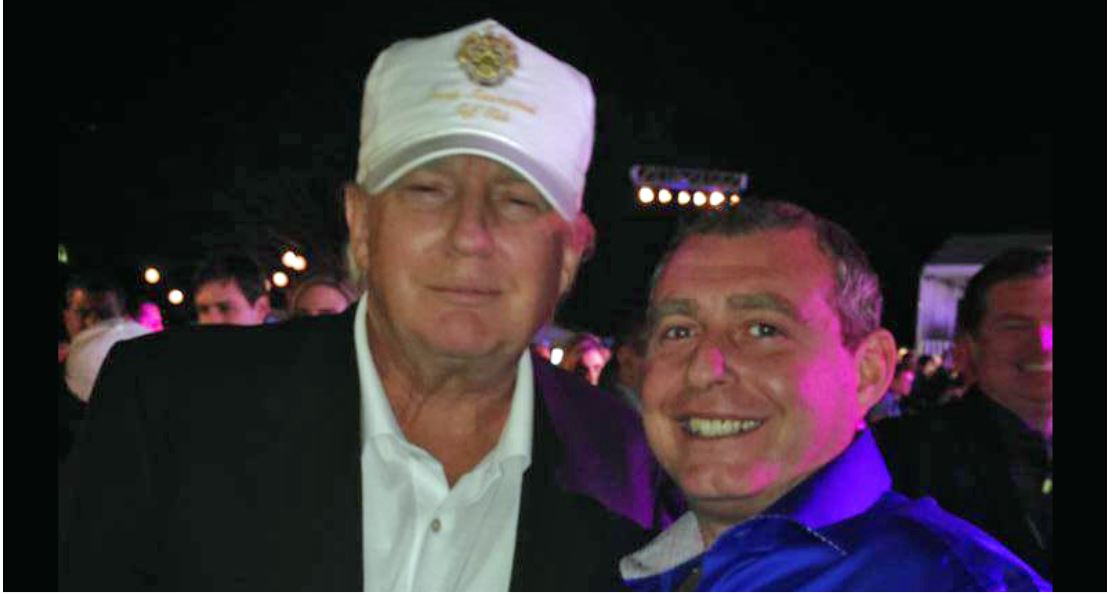Bannon’s One-Time Co-Conspirators Admit They Cheated Trump Supporters in the Conspiracy Trump Pardoned Bannon For
Thus far, SDNY (which was busy arresting the former President of Honduras on drug-trafficking charges) has not yet posted the minutes of yesterday’s plea hearing for Brian Kolfage and Andrew Badolato, much less their plea agreements and statements of offense.
Here is Adam Klasfeld’s live-tweet of the hearing and his write-up.
Until those documents are posted, we’re left with varying press descriptions of men — with whom Steve Bannon was charged, until a last minute pardon from Trump got him off federal charges — who cheated a bunch of Trump supporters. Klasfeld’s headline gets to that relationship:
Two of Steve Bannon’s Former Co-Defendants Just Pleaded Guilty to Allegations He Dodged Through Trump’s Pardon
After Pardon for Bannon, 2 Admit Bilking Donors to Border Wall
In Donald J. Trump’s final hours as president in January 2021, he pardoned his onetime chief strategist, Stephen K. Bannon, who faced charges that he had conspired to swindle donors to a private group that promised to build a wall along the Mexican border.
But three men charged with Mr. Bannon were not pardoned, and two of them pleaded guilty on Thursday in Federal District Court in Manhattan.
The WaPo doesn’t even describe the crime in the headline,.
Disabled vet pleads guilty in border-wall scheme that included Bannon
WaPo describes Bannon’s involvement, and the allegation he personally cheated Trump supporters out of $1 million, this way.
“We Build the Wall” was a large-scale private crowdfunding effort orchestrated by Kolfage, Bannon, Andrew Badolato and Timothy Shea in 2018. Its stated goal was to help the federal government complete the coast-to-coast barrier President Donald Trump had repeatedly promised his supporters. The four men were arrested in August 2020, when prosecutors accused Bannon of personally pocketing more than $1 million.
Bannon, a far-right figure who was a key strategist in Trump’s 2016 campaign, followed Trump to the White House for a relatively short stint as an administration official.
Their relationship had not completely soured by the end of Trump’s presidency, and Bannon received a presidential pardon on the eve of Trump’s departure from the White House, part of a wave of more than 140 other clemency actions — including for Trump associates who were ensnared in the Justice Department’s probe into Russia’s interference in the 2016 election.
Here’s how CNN handles the guilty pleas and Bannon’s involvement:
Two of Bannon’s co-defendants plead guilty to ‘We Build the Wall’ fraud
[snip]
The men are accused by federal prosecutors of using hundreds of thousands of dollars donated to an online crowdfunding campaign called We Build the Wall for personal expenses, among other things.
Bannon, who pleaded not guilty and denied any wrongdoing, was pardoned by then-President Trump in his final days in office. The Manhattan district attorney’s office is investigating Bannon for the same conduct and whether it violated state law. The pardon only covered federal crimes.
Timothy Shea, a fourth man charged in the fundraising effort, has pleaded not guilty. Last month he indicated to the judge that he would plead guilty, but changed his mind and is set to go to trial next month.
Bannon and Kolfage promised donors that the campaign, which ultimately raised more than $25 million, was “a volunteer organization” and that “100% of the funds raised … will be used in the execution of our mission and purpose,” according to the indictment.
But instead, according to prosecutors, Bannon, through a nonprofit under his control, used more than $1 million from We Build the Wall to “secretly” pay Kolfage and cover hundreds of thousands of dollars in Bannon’s personal expenses.
The NYPost calls the men “fraudsters” in the headline and — in a caption to a Bannon photo — notes he “was involved in the swindling GoFundMe campaign.” To its credit, that may be the best summary of what happened.
It is, admittedly, difficult to get what happened legally into the story yet, much less in a headline. That’s because while Bannon’s acceptance of a pardon might be viewed as evidence of guilt, he has not himself admitted he cheated Trump’s supporters. Plus, he could still be at legal exposure himself. I noted in December when Bannon hired pardon broker Robert Costello that Bannon might still face NY State charges (in which prosecution his former co-defendants could testify against him). Even before Cy Vance left, he was pursuing that possibility.
Even ignoring the circumstances of Bannon’s pardon, this fraud goes to the core of Trump’s relationship with his followers. Bannon’s co-conspirator Kolfage admitted that he lied to donors, people so worked up over Trump’s fear-mongering over brown people that they donated their own money, in part so he could sustain his own posh lifestyle (something else the NYP with its emphasis on images highlighted). This scheme treated Trump’s enthusiastic supporters as targets to be cheated, rubes whose support for Trump could be easily exploited.
Steve Bannon sure understood the relationship Trump has with his supporters.
Now consider the circumstances of Bannon’s pardon.
Dustin Stockton and Jennifer Lawrence, who have shown a real willingness to testify to anyone who would listen, described how pardons for cheating Trump supporters were tied to a commitment to help Trump steal an election.
In December 2020, as the tour rolled around the country, Stockton and Lawrence say they got a call from Rep. Paul Gosar (R-Ariz.) and his chief of staff, Thomas Van Flein. According to Stockton, Van Flein claimed he and the congressman had just met with Trump, who was considering giving them a “blanket pardon” to address the “We Build the Wall” investigation.
“We were just in the Oval Office speaking about pardons and your names came up,” Van Flein allegedly said. Van Flein did not respond to a request for comment.
Gosar suggested the bus tour was helping Stockton and Lawrence build support for a pardon from the caucus and Trump. “Keep up the good work,” Gosar said, according to Stockton. “Everybody’s seen what you’re doing.”
The hypothetical pardon for the two of them was tied to helping Trump fool his supporters into believing he was cheated out of a victory he had won. Stockton and Lawrence didn’t end up getting such a pardon (thus far, they haven’t needed one).
But Bannon — who played an as-yet unexplained role in convincing thousands of Trump supporters to commit crimes in service of this fraud — did get his pardon.
This fraud — where Trump allowed close associates to cheat his supporters, only to have Trump selectively pardon the single important person accused in the fraud in seeming exchange for his role in an even bigger fraud — perfectly captures Trump’s parasitic relationship with the cult he has created. It’s a pyramid scheme of abuse in which, thus far, the little guys at the bottom are the ones who pay the biggest price.
Trump not only doesn’t care that these people cheated his supporters, he’s willing to reward Bannon for helping him cheat them on still grander scale.
How we describe this pyramid scheme of abuse going forward is an important measure of the press’ ability to capture how Trump works. Thus far, Trump supporters have never rebelled against being used and cheated like this. Instead, they double down on their belief that Trump is the victim, rather than the con man victimizing them.
But yesterday, Brian Kolfage admitted that Trump supporters are the victims.






